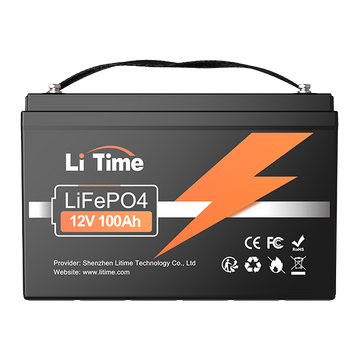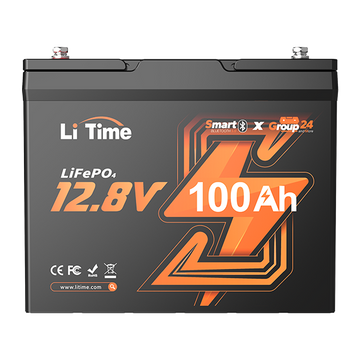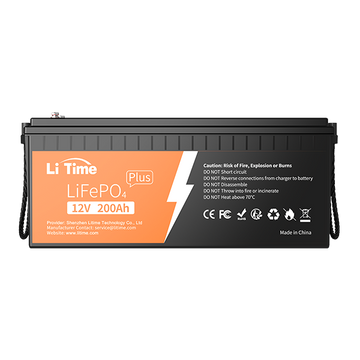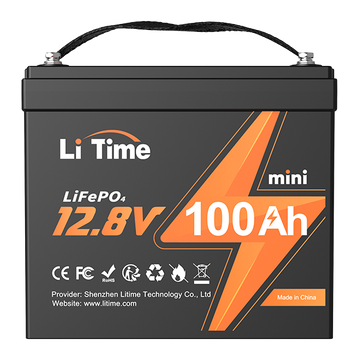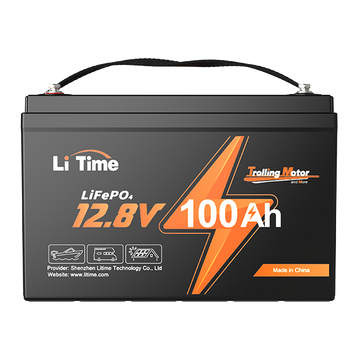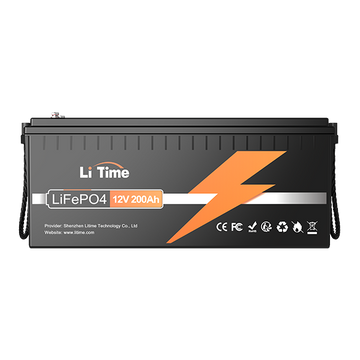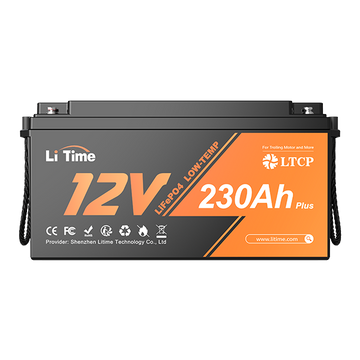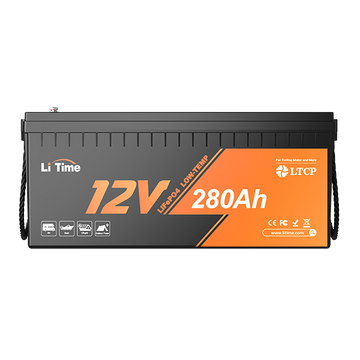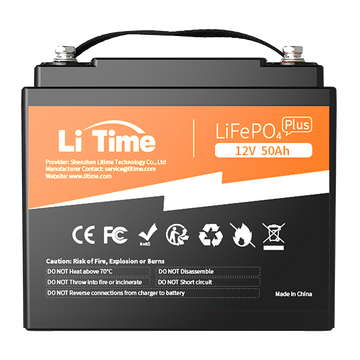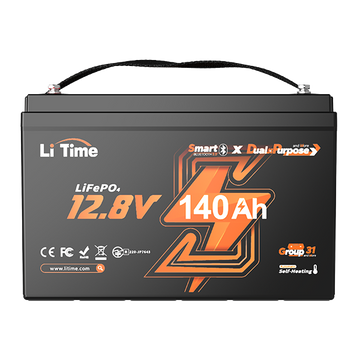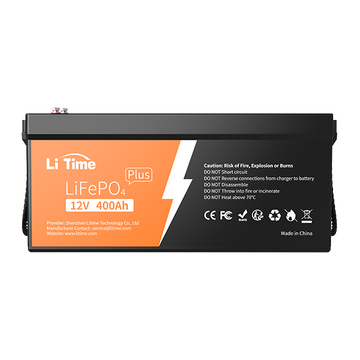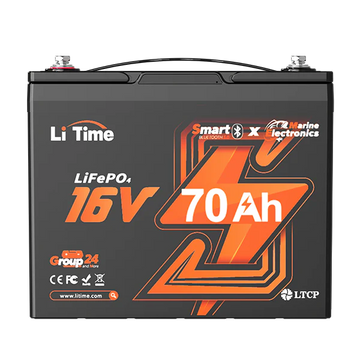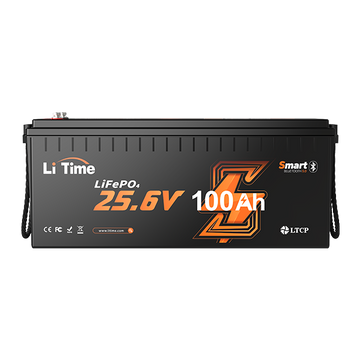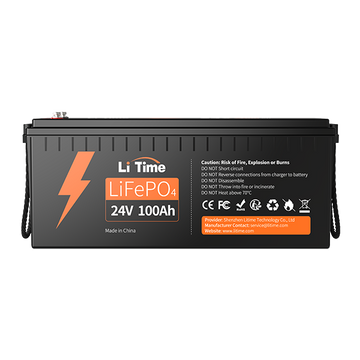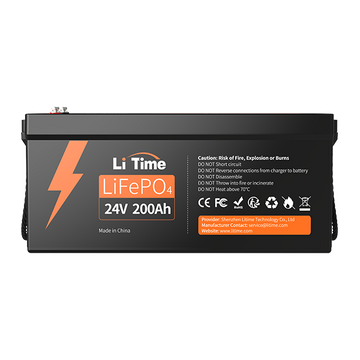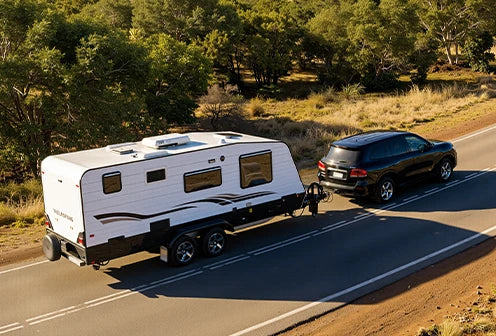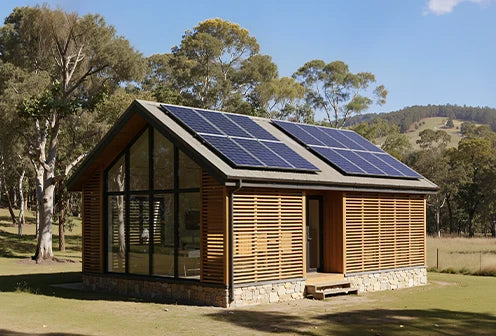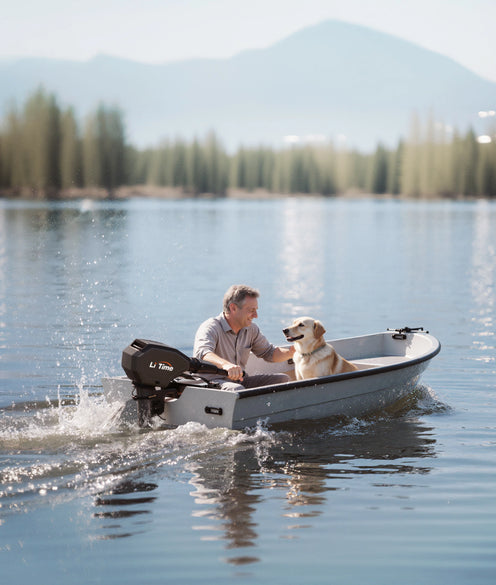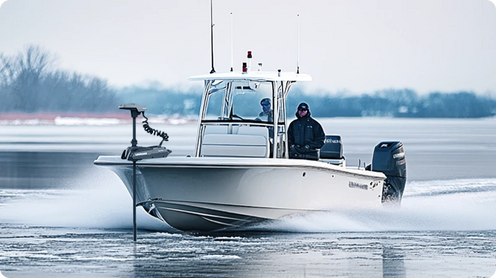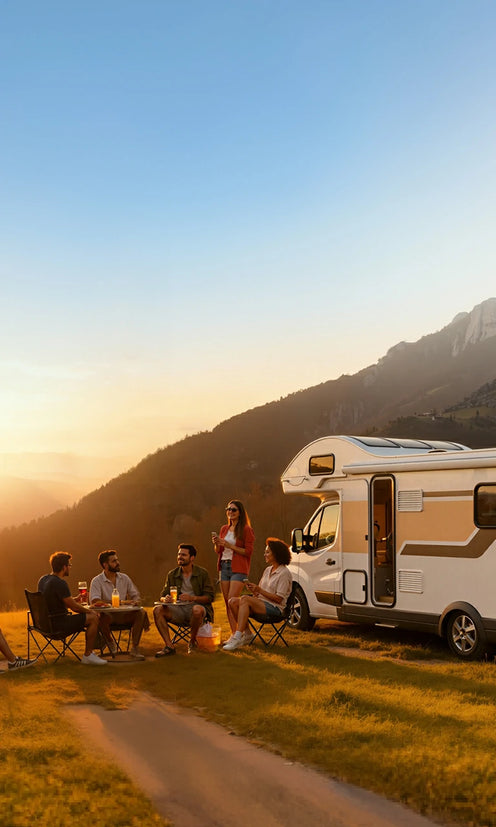Choosing the best lithium RV battery for your needs?
It's a key decision that impacts every off-grid adventure. To power your journeys with confidence, you need to navigate the AGM vs. lithium debate and find a reliable model that fits your setup.
This guide simplifies your search. Inside, you'll find our handpicked expert reviews and comparison of the top 6 models for 2025, plus clear answers on charging and maintenance—everything you need to make a powerful and informed choice.
- 1. What Is a Lithium RV Battery and How Does It Power Your RV?
- 2. Why Lithium? Comparing Battery Types for Your RV
- 3. How to Choose Your RV Lithium Battery
- 4. How to Maintain Your RV Lithium Battery
- 5. ★Top Picks: The 6 Best Lithium RV Batteries of 2025
- 6. Conclusion
- 7. FAQ About Lithium RV Batteries
What Is a Lithium RV Battery and How Does It Power Your RV?
At its core, an RV battery is a deep-cycle battery specifically designed to provide steady, reliable power for all the electrical needs of your mobile home on wheels. Unlike a car battery that delivers a short, high burst of energy to start an engine, a deep-cycle battery is built to be discharged and recharged repeatedly, powering your appliances day in and day out.

Think of your lithium RV battery as the heart of your RV's electrical system. When you're unplugged from shore power, it's this battery that keeps daily life comfortable and functional. Its primary purposes include:
● Running Interior Appliances and Systems: This is its main job. From essential lights and water pumps to comforts like refrigerators, televisions, and vent fans, your 12V battery is what makes off-grid living possible.
● Storing Solar Energy: If your RV has solar panels, they generate power during the day. The RV battery stores this energy, allowing you to use it at night or on cloudy days, turning sunlight into usable electricity.
● Powering Slide-Outs and Leveling Systems: Modern RVs rely on the battery to operate powerful motors for extending slide-out rooms and auto-leveling jacks, ensuring your living space is set up safely and correctly.
● Serving as a Reliable Backup: It acts as an emergency power reserve, ensuring critical devices like your CO/propane detector or basic lighting remain operational.
Most modern lithium batteries for RVs use LiFePO4 technology, which is renowned for its safety, longevity, and efficiency. But with different battery types available, how do you know that lithium is truly the best choice for powering your adventures?
Why Lithium? Comparing Battery Types for Your RV
Now that we understand the vital role your RV battery plays, the next question is: which type is right for you? While all RV deep cycle batteries serve the same fundamental purpose, the technology inside them varies dramatically, impacting everything from performance to lifespan.
Primarily, you'll be choosing between two categories:
Traditional Lead-Acid Batteries:
1. Flooded (FLA): The most basic type. They require regular maintenance (like adding water) and must be kept upright to prevent leaks. They are the most affordable upfront but have the shortest lifespan.
2. AGM (Absorbent Glass Mat): A significant upgrade. AGM batteries are sealed, maintenance-free, and more resistant to vibration. They offer better performance and faster charging than flooded batteries, at a higher cost.
Modern Lithium Iron Phosphate (LiFePO4):
This is the technology that has revolutionized off-grid power.
LiFePO4 batteries are exceptionally lightweight, can be discharged to almost 100% of their capacity without damage, last for thousands of cycles, and require zero maintenance.
While AGM was once the premium upgrade, lithium has set a new standard. But how do these two front-runners—AGM vs. lithium—truly compare in a head-to-head matchup?
AGM vs. Lithium RV Batteries: A Detailed Head-to-Head Comparison
To help you make an informed decision, we've broken down the key differences between AGM and lithium RV batteries in the table below.
Following that, we dive deeper into what each of these characteristics truly means for your RV experience.
| Characteristic | AGM Battery | Lithium (LiFePO4) Battery |
|---|---|---|
| Depth of Discharge (DoD) | ~50% | >80% (Often 100%) |
| Lifespan (Cycles) | 300 - 500 | 4,000 - 5,000+ |
| Weight (for 100Ah) | ~65 lbs | ~25 lbs |
| Charge Efficiency | Slower (Absorption stage) | Faster (Nearly 100%) |
| Maintenance | Minimal | Zero |
| Safety | Good (Sealed, but can vent) | Excellent (Stable LiFePO4 chemistry, built-in BMS) |
| Technology | Basic | Often includes Bluetooth & Smart Monitoring |
| Initial Cost | Lower | Higher |
| Long-Term Value | Fair | Superior |
Breaking Down the Key Differences
Let's explore what these technical specifications mean for your real-world RV experience.
1. Usable Power & Depth of Discharge (DoD)
● Lithium (LiFePO4) Battery: You can safely use over 80% to even 100% of the rated capacity. This means a 100Ah lithium battery delivers a full 100Ah of usable power, effectively doubling your available energy compared to AGM.
● AGM Battery: To prevent damage and ensure longevity, you should not discharge an AGM battery beyond 50% of its capacity. A 100Ah AGM battery therefore provides only about 50Ah of usable power before it needs recharging.
2. Lifespan and Long-Term Value
● Lithium (LiFePO4) Battery: Designed for the long haul, with a lifespan of 4,000 to 5,000+ cycles. This translates to 10-15 years of service, making the higher initial investment pay off over time.
● AGM Battery: Typically offers 300-500 cycles, often needing replacement after 3-5 years of regular use. While cheaper upfront, this shorter lifespan can lead to higher long-term costs.
3. Weight and Energy Density
● Lithium (LiFePO4) Battery: Dramatically lighter, with a typical 12V 100Ah model weighing around 25-30 lbs. This high energy density means more power with less weight, improving fuel efficiency and payload.
● AGM Battery: Significantly heavier, with a comparable 12V 100Ah unit weighing 60-70 lbs. The added weight can impact your RV's overall cargo capacity and mileage.
4. Charging Speed and Efficiency
● Lithium (LiFePO4) Battery: Can accept a very high charge current, allowing them to recharge from solar or generators much faster. They charge with near-perfect efficiency, wasting very little energy as heat.
● AGM Battery: Charging is slower, especially during the crucial absorption stage. They are less efficient, losing more energy to heat during the charging process.
5. Maintenance and Smart Features
● Lithium (LiFePO4) Battery: Virtually maintenance-free. Most modern models come with Bluetooth connectivity, allowing you to monitor performance and adjust settings directly from your smartphone.
● AGM Battery: Also largely maintenance-free, but may require occasional equalization charging. They lack advanced monitoring features, offering basic voltage readings at best.
The Bottom Line:
Choose an AGM battery if you are a casual weekend traveler with a strict initial budget. However, for full-timers, frequent boondockers, or anyone who values long-term performance and convenience, the lithium RV battery is a vastly superior investment that enhances your power system's capacity, efficiency, and lifespan.
How to Choose Your RV Lithium Battery
Choosing the perfect lithium RV battery doesn't have to be complicated. While specs matter, your decision ultimately comes down to three key questions.
Use this quick guide to narrow your options and find the right fit for your needs.
| Priority | Your Need | What to Look For |
|---|---|---|
| Capacity | Weekend trips vs. Long-term boondocking |
|
| Power | Running high-wattage appliances (microwave, A/C) | High continuous output (in watts) from the BMS |
| Budget & Trust | Balancing upfront cost with long-term value | A competitive price backed by a strong warranty (5+ years ideal) |
Making Your Choice:
1. Start with Capacity: Be realistic about your energy usage. A single 100Ah lithium battery offers nearly double the usable power of a similar AGM, making it a great starting point for most. For larger needs, plan for a 200Ah battery or connecting multiple ones.
2. Don't Compromise on the BMS: The Battery Management System (BMS) is non-negotiable for safety. It ensures your investment is protected from common hazards.
3. Think in Cost-Per-Year: The higher initial cost of a lithium battery is justified by a lifespan that is often 3-5 times longer than AGM. A longer warranty is a good indicator of this durability.
Now that you know what to look for, let's dive into our top picks. The following best lithium batteries for RV have been selected based on these critical factors to simplify your final decision.
How to Maintain Your RV Lithium Battery
One of the greatest advantages of a LiFePO4 battery is its minimal maintenance. You won't find any complex routines here. By following a few simple best practices, you can ensure your battery delivers optimal performance for years to come.
1. Use a Compatible Charger
Always use a charger designed for lithium batteries. Your RV lithium battery charger should have a dedicated LiFePO4 charging profile. Using an incorrect charger (e.g., one meant only for AGM) can prevent the battery from charging fully or, in rare cases, cause damage.
2. Smart Storage for Longevity
If storing your RV for an extended period:
● Charge Level: Store the battery at a 50-80% state of charge.
● Location: Keep it in a cool, dry place, away from direct sunlight and freezing temperatures.
3. Keep it Clean and Monitored
● Periodically check the terminals for corrosion and ensure connections are tight.
● Take advantage of built-in Bluetooth monitors (if available) to keep an eye on your battery's health without any tools.
Do's and Don'ts at a Glance:
| Do's | Don'ts |
|---|---|
| ✔️ Use a lithium-compatible charger | ❌ Let the battery sit at 0% for long periods |
| ✔️ Store in a cool, dry place | ❌ Expose to extreme heat while charging |
| ✔️ Check connections periodically | ❌ Use an old charger not designed for LiFePO4 |
That's all there is to it. With virtually no regular maintenance, you can enjoy reliable power and focus on your adventures. Now, let's meet the top performers that make owning a lithium RV battery so rewarding.
★Top Picks: The 6 Best Lithium RV Batteries of 2025
To simplify your search, we've compiled a side-by-side comparison of our top-rated lithium batteries for RV use.
This table provides a quick snapshot of their key specifications, helping you identify the best candidates for your setup at a glance.
| Brand / Model | Voltage | Capacity | Weight | Key Features |
|---|---|---|---|---|
| LiTime 12V 100Ah Group 24 Battery | 12V | 100Ah | 21.8 lbs | Bluetooth 5.0, Low-temp cut-off protection, Ultra-Light |
| LiTime 12V 280Ah Bluetooth Battery | 12V | 280Ah | 57.7 lbs | High Capacity, Bluetooth, Expandable |
| LiTime 12V 230Ah Plus Battery | 12V | 230Ah | 45.2 lbs | Balanced Capacity, Bluetooth, IP65 |
| Battle Born 12V 100Ah Battery | 12V | 100Ah | 31 lbs | US Brand, Rugged Durability |
| Manly 12V 200Ah Battery | 12V | 200Ah | 49 lbs | High Value, Long Cycle Life |
| Dakota Lithium 12V 100Ah Battery | 12V | 100Ah | 23 lbs | Ultra-Light, Exceptional Cycle Life |
LiTime 12V 100Ah Group 24 Bluetooth LiFePO4 Battery
Meet LiTime's latest innovation – the LiTime 12V 100Ah Group 24 Bluetooth LiFePO4 battery engineered to be your 2025 must-have.

This model isn't just an energy source; it's a smart power hub. Featuring integrated Bluetooth 5.0 for effortless monitoring and a robust BMS with over 20 protections, it seamlessly combines intelligence with rugged reliability. Its compact Group 24 size delivers 200% the energy of a lead-acid battery in just 75% of the space, making it the ultimate lithium battery for RVs, camping, and off-grid applications.
Pros:
● Smart Bluetooth Monitoring: Bluetooth 5.0 with auto-connection allows for smart control and real-time monitoring directly from the LiTime App.
● Advanced Safety & Management: The latest BMS provides comprehensive protection, including low-temperature cut-off and automatic overload protection that requires no user intervention.
● Superior Performance & Longevity: Built with EV Grade-A LiFePO4 cells for 4000+ cycles at 100% DoD. It delivers 1280Wh of energy and a 500A peak discharge current to handle large surges.
Cons:
● Fixed Footprint: The Group 24 form factor, while compact, may not fit all existing battery compartments designed for larger sizes.
LiTime 12V 280Ah Plus Deep Cycle Lithium Battery

For those who need maximum power for extended boondocking, the LiTime 12V 280Ah Plus Deep Cycle Lithium Battery is a beast. This high-capacity lithium battery delivers an immense 3584Wh of energy, allowing you to run more appliances for longer.
Pros:
● Massive Capacity: The 280Ah rating provides exceptional runtime.
● Powerful Output: A 200A BMS supports 2560W of continuous power for demanding devices.
● Highly Expandable: Can be connected to create a massive energy system.
● Long Cycle Life: Built with EV-grade LiFePO4 cells for over 4000 cycles.
Cons:
● Heavy: At 57.7 lbs, installation can be a two-person job.
● Large Footprint: Its physical size requires ample compartment space.
LiTime 12V 230Ah Plus Deep Cycle LiFePO4 Battery

The LiTime 12V 230Ah Plus Deep Cycle LiFePO4 Battery offers a sweet spot of high capacity and manageable size. It's an excellent deep cycle battery for RVers who need more than a standard 100Ah but don't require the extreme size of the 280Ah model.
Pros:
● Ideal Capacity: 230Ah (2944Wh) is a substantial upgrade for powering multiple appliances.
● Durable Build: IP65 rating makes it dust-tight and protected against water jets.
● Strong Output: Supports a 1000A surge current, easily starting high-power inverters.
Cons:
● Weight: At over 45 lbs, it is still a substantial load to move and install.
● Premium Price: Positioned as a higher-capacity option with a corresponding cost.
Battle Born Batteries 12V 100Ah Battery

Battle Born is one of the most recognized names in the RV lithium battery space, known for its reliability and robust build quality. This battery is a solid, no-nonsense choice for those who prioritize proven performance.
Pros:
● Proven Track Record: Extensive history of reliable use in the RV community.
● Durable Construction: Built to withstand the vibrations and rigors of life on the road.
● Flexible Installation: Can be mounted in any orientation.
Cons:
● Premium Price: One of the more expensive options in the 100Ah category.
● No Bluetooth: Lacks integrated smart monitoring.
● Heavier for its Class: At 31 lbs, it's heavier than other modern 100Ah lithium batteries.
Manly 12V 200Ah LiFePO4 Lithium Battery

The Manly 200Ah LiFePO4 battery offers a compelling mix of high capacity and attractive pricing. It's an ideal solution for power-users who need extended runtime without a top-tier price.
Pros:
● Excellent Capacity-to-Price Ratio: 200Ah of power at a competitive price.
● Outstanding Cycle Life: Rated for over 6,000 cycles.
● Quality Cells: Utilizes Grade A+ LiFePO4 cells.
Cons:
● No Bluetooth: Lacks a built-in smart monitoring system.
Dakota Lithium 12V 100Ah Deep Cycle LiFePO4 Battery

Dakota Lithium has built a reputation on producing incredibly lightweight and long-lasting batteries. This 100Ah model is a top pick for weight-conscious travelers who do not require advanced smart features.
Pros:
● Exceptionally Lightweight: At 23 lbs, it's incredibly easy to handle.
● Superb Cycle Life: One of the best in class, rated for over 5,000 cycles.
● Performance in Extremes: Functions well in a wide range of temperatures.
Cons:
● No Low-Temp Charge Protection: Lacks a critical safety feature for charging in cold climates.
● No Smart Features: Does not include Bluetooth monitoring.
● High Cost: Commands a premium price despite lacking smart features.
Why Choose LiTime's RV Batteries?
- Best Value - Tech-driven RV batteries offering high-quality power solutions at wallet-friendly prices.
- Versatility - Available in 50Ah to 460Ah capacities to match any adventure, from weekend trips to extended boondocking.
- Durability - Extended operating hours and sustained performance with optimized Depth of Discharge (DOD).
- Safety - Built with stable lithium iron phosphate chemistry for enhanced durability and protection.
- Innovative Features - Rugged design withstands harsh conditions with optional protective battery boxes available.
- Advanced Functionality - Bluetooth connectivity, battery saving mode, and daily power reports for smart power management.
- Warranty & Support - 5-year warranty backed by 24/7 customer service and local technical support.
Conclusion
Making the switch to a lithium RV battery is one of the smartest upgrades you can make for your mobile adventures. As we've seen, the superior performance, longer lifespan, and lighter weight of LiFePO4 technology clearly outperform traditional options, making it the definitive choice for modern RVers.
Based on our comprehensive analysis of performance, features, and long-term value, we confidently recommend LiTime's RV Batteries for their exceptional blend of advanced technology, reliable performance, and outstanding customer support - making them an excellent choice for powering your adventures.
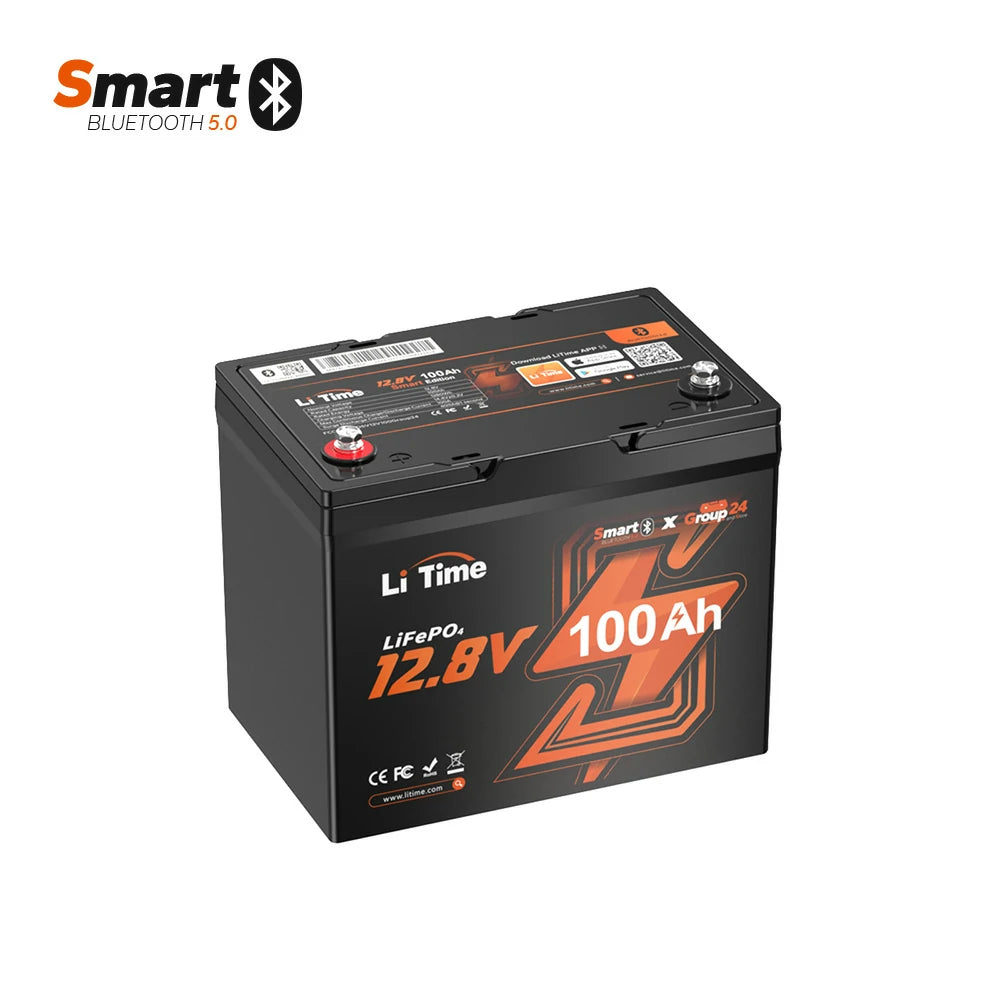
FAQ About Lithium RV Batteries
How long does an RV battery last while boondocking?
The duration depends on your power consumption, but a lithium RV battery typically powers off-grid camping for 2 to 7 days. For example, a single 100Ah LiFePO4 battery can usually sustain moderate usage for 3-4 days, thanks to its ability to utilize nearly 100% of its capacity compared to traditional batteries.
What's the best way to charge an RV lithium battery?
There are three recommended methods for charging your RV lithium battery:
1. Lithium-compatible battery charger - Specifically designed for LiFePO4 chemistry
2. Solar panels - Ideal for sustainable off-grid power
3. Generator - Reliable backup for quick charging
Always use a proper RV lithium battery charger to ensure optimal performance and battery health.
What size lithium battery do I need for my RV?
Choosing the right lithium battery for your RV depends entirely on your power consumption. Here's a general guideline:
● Small RVs and camper vans: A 100Ah to 200Ah 12V battery is a common starting point
● Large RVs and fifth wheels: Typically require 200-400Ah systems, which may be 12V or 24V configurations
To determine your exact needs, calculate the total daily amp-hour (Ah) consumption of all your appliances and add a safety buffer of 20-30%.
